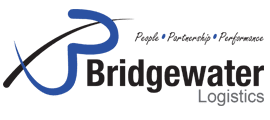Fleet management can be extremely complex, and this is just one of the key reasons why so many smaller businesses prefer outsourcing their road transport logistics requirements to Bridgewater Logistics.
This leading third-party logistics (3PL) provider operates a large fleet of trucks for both its line-haul and distribution operations, two fundamental pillars of its comprehensive supply-chain solutions offering, which also includes warehousing and crossdocking.
Robust maintenance and fleet replacement practices have ensured that the company is able to provide a safe, affordable and high quality road transport logistics solution.
Quinton de Villiers, managing director of Bridgewater Logistics, says that one of the common mistakes made in transport logistics is to disregard fleet replacement guidelines.
“Evolving capital expenditure restrictions leads to inconsistent buying patterns and opportunistic purchasing. This short-sighted approach is often adopted in challenging economic climates such as these and leads to an aged fleet that is more expensive to maintain and no longer fuel efficient. In has even contributed to the many truck breakdowns that we see on our congested highways and, in extenuating circumstances, dangerous accidents,” De Villiers says.
Worryingly, capital fleet budgets are often redeployed as capital reserves for other asset groupings to the detriment of solid maintenance and fleet renewal programmes.
This, in turn, increases maintenance and operating costs and leads to inefficiencies in the supply chain, of which transport logistics is the biggest contributor, in terms of costs.
He says, in the worst case scenario, this could lead to a situation where an entire truck fleet now needs to be replaced in an extremely short period.
This has been to the detriment of many smaller road transporters which are supplying their services at extremely low rates by disregarding the high costs associated with maintaining and managing a commercial fleet.
Operating inefficient trucks, they are now also at the mercy of soaring fuel prices and it is highly unlikely that they will be able to pass this expense onto their customers, considering cost pressures due to a struggling economy.
A seasoned 3PL is also in a position to establish robust standards that guide costly purchasing decisions.
“We always try to hit the so-called ‘sweet spot’ by achieving that perfect balance that exists between quality and affordability when dealing with truck original-equipment manufacturers (OEMs). It is also prudent practice to limit brand ownership to only a few of these manufacturers to reduce maintenance costs, while this has also greatly improved our ability to negotiate favourable prices with long-standing partners in our supply chain,” De Villiers says.
While the company prefers dealing with reputable and established OEMs, management always keeps a close watch on the latest trends in the truck manufacturing sector to retain its leading standing as the country’s foremost road transport specialist.
This is considering the leading role that this industry continues to play in innovating road transport by focusing on fuel efficiency, as well as ergonomics to improve driver productivity and safety.
He says that Bridgewater Logistics complements these practices by interventions geared at curbing wastage and abuse of these important assets.
“Ongoing driver training, for example, has played a large role in eliminating excess idling and unsafe driving behaviour, while robust management decreases unreported vehicle use, non-existent or underused pooling programmes,” De Villiers concludes.


